Working with RESQ, Jessica Roberts is privy to several stray animal accidents and incidents. This World Stray Animal Day, we talk to her about her job and more!
In a country where the population of stray animals is a skyrocketing 80 million, there are those who are working relentlessly in Animal Welfare. Jessica Roberts is the Centre and Outreach Manager at RESQ Charitable Trust, an organisation founded with an aim to minimise human-animal conflict and provide relief to animals in distress. In a candid conversation with Jessica, we bring you some meaningful insights into her expertise on everything 'Stray'!
1. What drew you towards Animal Welfare? 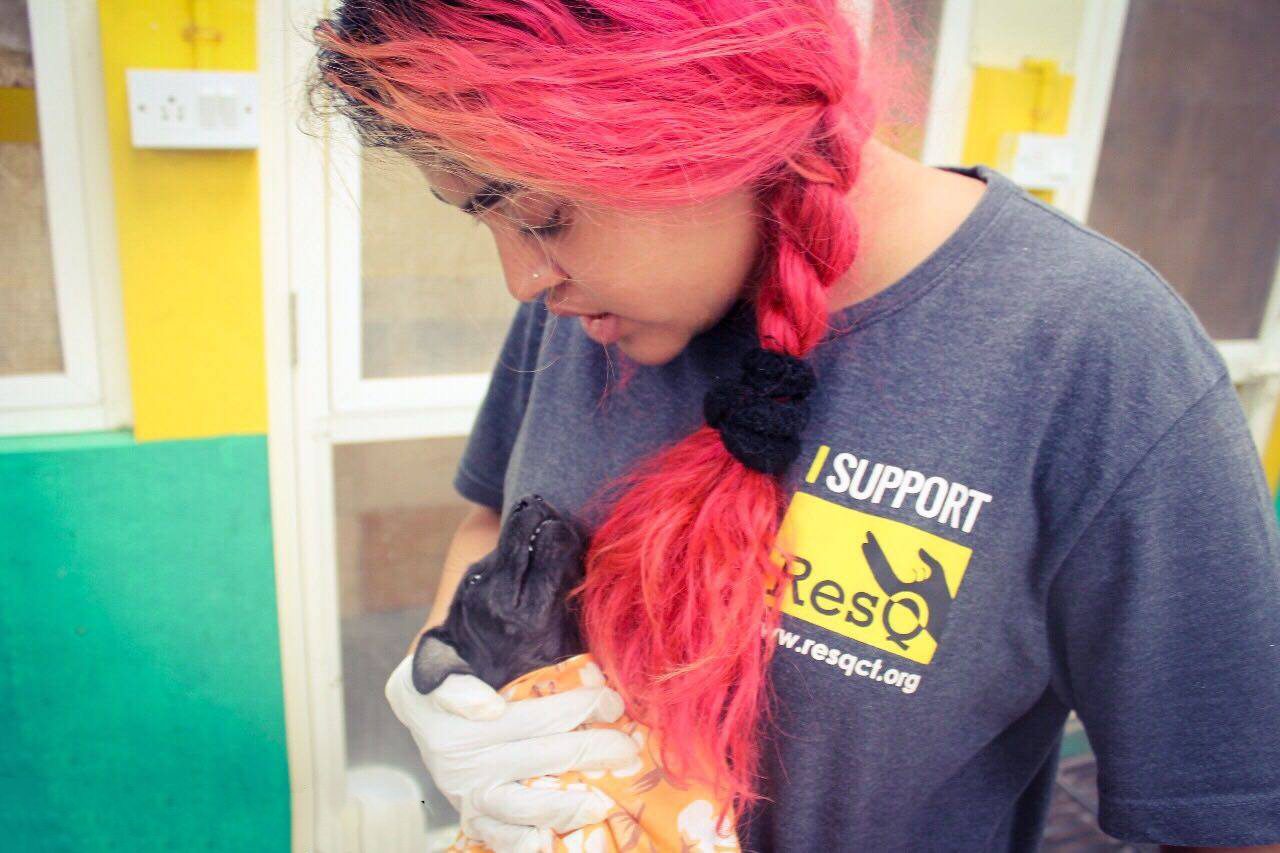
The seed that has brought me to today, to where I am, and what I do was planted when I was 4 years old. Most children grow up watching cartoons and TV shows. I grew up watching animal documentaries and movies like Those Amazing Animals, Hatari, and Animals are Beautiful People. Growing up, the goal with the simple and single-minded intensity of a child was to be able to work with animals. I grew up oscillating between wanting to become a veterinarian or a zookeeper.
Eventually, I went on to become a dog trainer and the need to work with animals was satiated temporarily. While working with pet dogs, I met so many pets that had genetic disorders due to unethical breeding. Talking to pet parents made me realise how so many were just unaware of unethical breeding. Talking to pet parents made me realise what I actually wanted to do. I wanted to work towards creating awareness. Awareness that will not only be beneficial to pet parents but to everyone. Awareness about dogs and cats, be they street or pet. Birds and insects and how we can live in harmony with them.
I began volunteering and helping street animals because I was finally able to be a part of the solution. I stayed in animal welfare because I knew I wanted to change the very reason these animals needed help by creating a more aware community. I stayed because surrounded by like-minded people that change did not seem impossible.
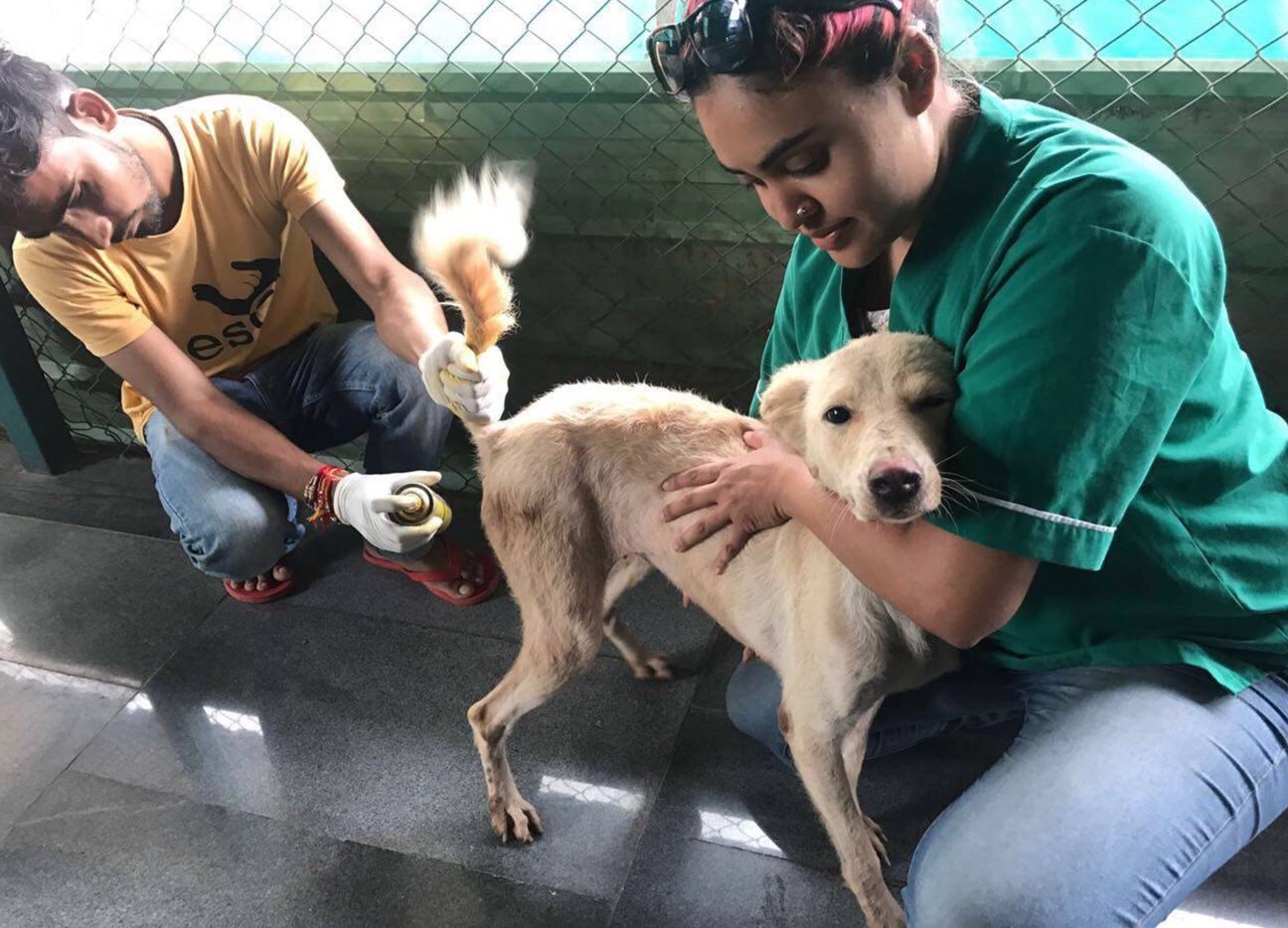
2. Can you give us some insight into what your typical day at work looks like?
My typical day… No such thing.
Mornings:
No day of mine feels like it has begun unless, with a cup of tea in my hand, I check the message groups at RESQ. If there is nothing on the message groups that needs my immediate attention, I’ll drop off my bags in the media room and head to the Treatment Area at the Domestic TTC to say hello to the oldies there — Max, Rocky, Gypsy and Flory. They are all senior citizens and I like to check on them to know they are ok. Greetings and body checks of them are followed by hellos and good mornings to the RESQ Sanctuary animals, both dogs and cats, for a quick check to see all is well.
What follows is a quick walk around the Centre and a check-in with Balan, the Centre supervisor, follows. We go over all the tasks that were tackled yesterday and all the chores, repairs, and tasks that need to be undertaken today. By now it's mid-morning, which means another cup of coffee or tea. Now begins the tackling of emails, messages, order placements, paperwork, and phone calls.
A working lunch and check-in with Balan and Pallavi (Head of Domestic TTC) on how their day is going and do they need me to help them with anything. I troubleshoot solutions with them and begin work on any Jessica-related tasks I need to do. A cup of tea and a Centre tour end my day there. If there is an abandoned pet that I need to begin desensitisation and behaviour modification training with, it will get squeezed into the day. Recently, I began working more intimately with the Outreach team at RESQ and the work like content checks, media checks and research all happens on the go throughout the day.
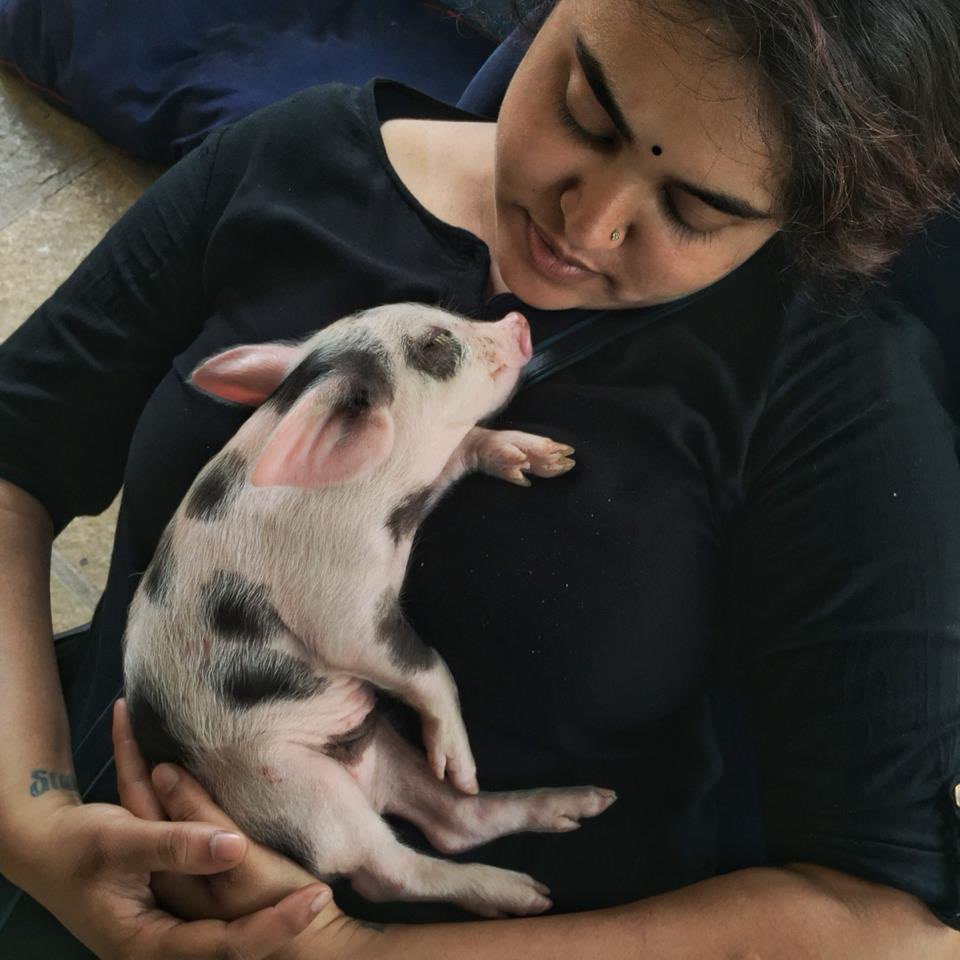
3. What would you say is the biggest challenge you have faced while working with these animals? And how did you overcome this challenge?
A youth picking up a puppy from the side of the road and bringing it home; after 3 days doesn’t know what to do with it. Pets getting sick cause their pet parents did not know about the availability and necessity of vaccinations, which leads to abandonment. A woman keeping 14 dogs in her house and being unable to care for them or herself with the understanding that she is rescuing them.
All of the above is caused by the lack of awareness that results in misguided good intentions. That is one of the biggest challenges we face today. The challenge of creating knowledge that will be appealing to all, from children to adults. The provision of information that will aid everyone make more aware and mutually beneficial decisions for both themselves and the environment they share with animals.
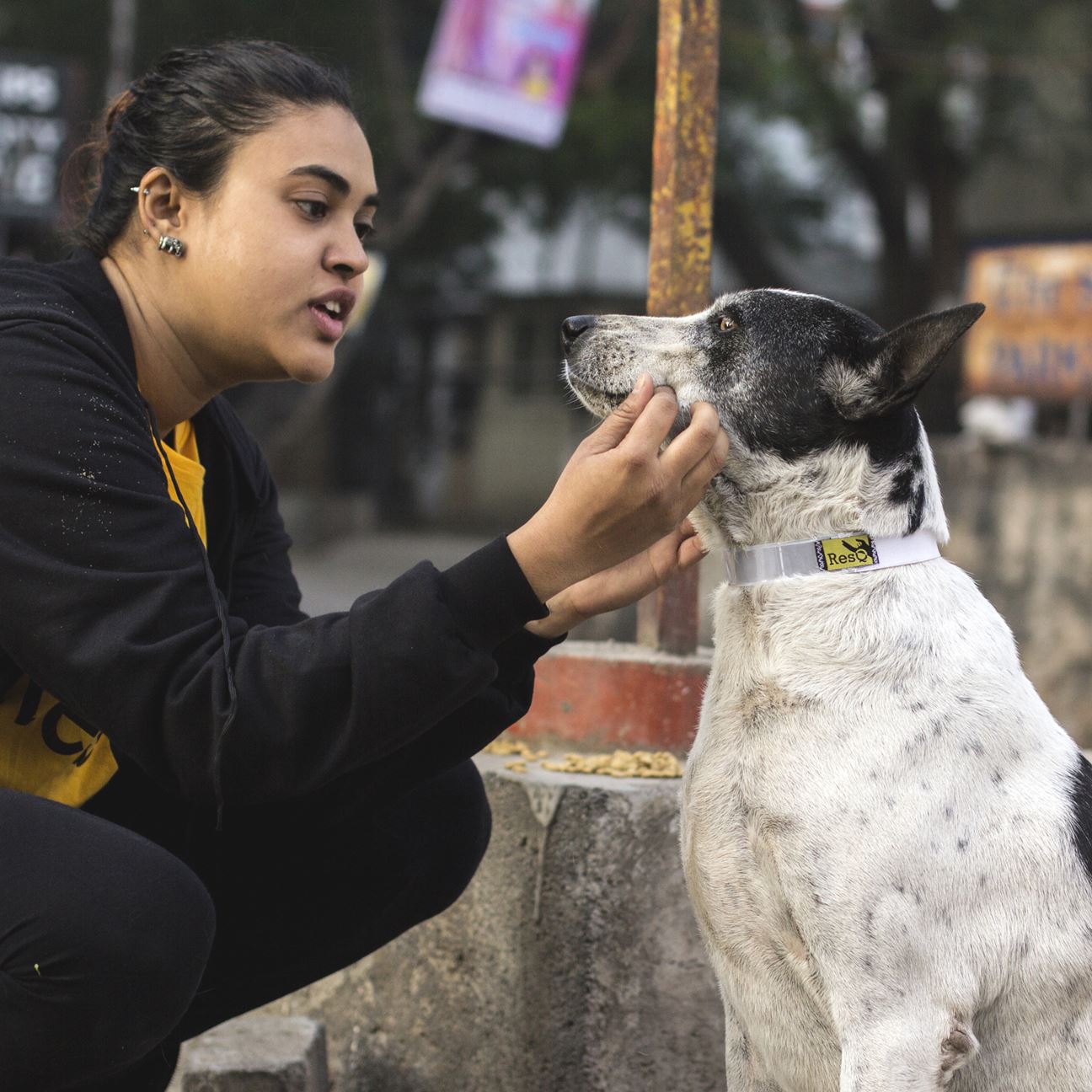
4. What would you say is your favourite part about working with stray animals?
Being a witness to their strength. No injury or sickness brings them down. The will to survive and overcome is inspiring and one that I can only hope to emulate if the need ever arises.
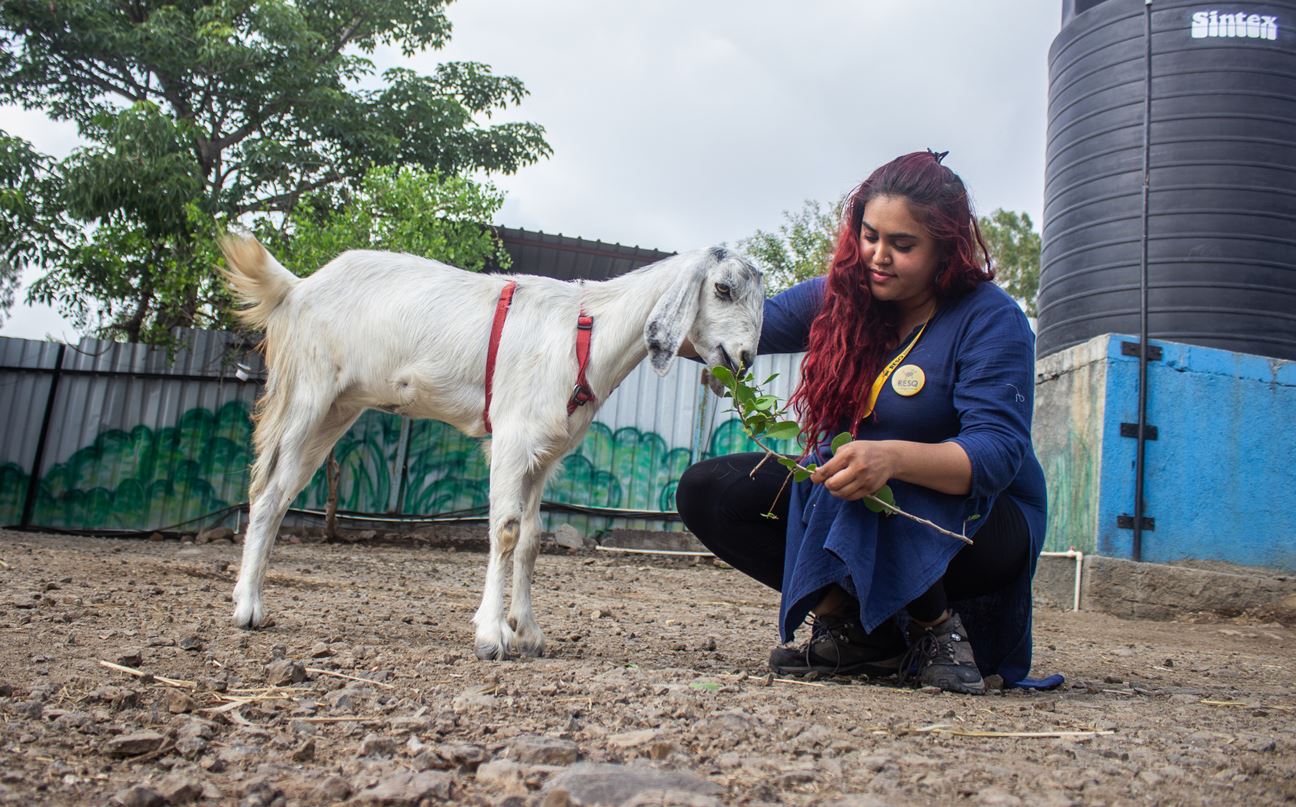
5. Any tips for people who love animals but don't know how they can contribute in any way towards stray animal welfare?
There are so many things that one can do, but I will limit my recommendations to three easy and simple things:
- Be conscious of your garbage disposal.
- Be tolerant, indifferent, but never violent.
- Be aware of your actions and how they affect all living beings around you.
If anyone would like more information about how they can actively contribute to stray animal welfare, reach out to me at jessica@resqct.org and I will be happy to help!
And on that note, Jessica signs off. To all animal lovers out there, we leave you with this thought, to you, a random act of kindness towards an animal may not seem like a huge deal, but to that animal, it could change their whole life!